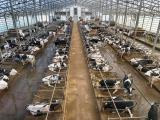Apr 13, 2012 (CIDRAP News) – In a leaked letter, a member of the National Science Advisory Board for Biosecurity (NSABB) has charged that federal officials planned the board's meeting in late March in a way designed to lead the board to reverse its earlier recommendation against full publication of two studies describing lab-modified H5N1 viruses with increased transmissibility in mammals.
The letter was written by board member Michael T. Osterholm, PhD, MPH, director of the University of Minnesota's Center for Infectious Disease Research and Policy, publisher of CIDRAP News. The news staff learned of the letter when ScienceInsider published it today, along with a news story.
Osterholm essentially argued that the National Institutes of Health (NIH) officials who planned the meeting set up the board to change its earlier recommendation and thereby "kick the can down the road" concerning the science policy issues at stake. He said he was expressing only his own views.
Out of concern about possible misuse of the findings, the NSABB recommended in December that the details of studies led by Ron Fouchier, PhD, of Erasmus Medical Center in the Netherlands and Yoshihiro Kawaoka, DVM, PhD, of the University of Wisconsin should be withheld from publication.
But after the authors provided new information about their findings, the NSABB was reconvened on Mar 29 and 30. At that point the board voted 12 to 6 to recommend that the full details of Fouchier's study should be published. The panel was unanimous in recommending full publication of Kawaoka's paper. The studies are expected to be published in Science and Nature, respectively.
Osterholm addressed his 6-page letter to Amy P. Patterson, MD, NIH associate director for science policy. In addition, according to the letter, he shared it with the rest of the NSABB and with other NIH staff members who support the board's work. He said he voted for full publication of the Kawaoka paper but voted against that outcome for Fouchier's study.
"I believe that the agenda and speakers for the March 29 and 30th NSABB meeting as determined by the OBA [NIH Office of Biotechnology Activities] was designed to produce the outcome that occurred," Osterholm wrote. "It represented a very 'one-sided' picture of the risk-benefit of the dissemination of the information in these manuscripts."
He wrote that there was a bias toward finding a solution that was more about getting the government out of the current dilemma than about a careful risk-benefit analysis weighing science and policy considerations, but he prefaced that statement by saying he is not suggesting a sinister motive.
In that context, Osterholm revealed that Fouchier disclosed at the meeting that he has already identified another H5N1 mutation, not described in his current manuscript, that results in ferret-to-ferret transmission of the virus "without the need for repeated passaging of the virus in ferrets."
"This work, which may have been supported by NIH funds, surely must be considered as a candidate for the next manuscript to be before the NSABB for review," he wrote. "What scientific and policy issues will differ with this 'incrementally changed manuscript' compared with the issues we just covered?"
Osterholm further asserted that the meeting included no unbiased review of the current state of reverse genetics technology that might allow those without great expertise or resources to duplicate the experiments. The experts who addressed the issue had a conflict of interest because they are involved in the same type of research as Fouchier and Kawaoka are and will be affected by the board's recommendations, he said.
He also wrote that the board didn't hear from anyone involved in frontline surveillance and control efforts for H5N1, who could've addressed assertions from others, including Fouchier and Kawaoka, that publishing the full data could help surveillance efforts. Echoing a point he has made previously, he said experts from the UN Food and Agriculture Organization and other groups have told him that without major new resources, the data would not fundamentally change surveillance and control practices in affected countries.
On another point, Osterholm said the security briefing that the board heard was "one of the most incomplete and, dare I say, useless classified security briefings" he had ever heard. The briefing did not address the risk of efforts by "rogue scientists or irresponsible researchers" to replicate the experiments in labs without proper biosafety precautions, or the risk of an attempt by eco-terrorists to disrupt animal production by releasing a more-transmissible H5N1 virus in swine.
He also complained that the meeting included no "data-related presentations" on possible use of the mutation data to develop vaccines and antivirals, a prospect that leading experts have been skeptical about.
A primary lesson of the meeting, Osterholm wrote, is that the NSABB must "involve disinterested subject matter experts to provide technical advice." He added that the life science community should look critically on the "relative lack" of expert input from those without a direct interest in the board's decisions.
He concluded that the board's recent experiences represent just the beginning of conflicts over the publication of research findings that could be misused to do harm. "It is unfortunate that the current NSABB action just kicked the can down the road to the next manuscript," he said.
According to the ScienceInsider story, Susan Ehrlich, a retired judge and NSABB member who also voted against publishing Fouchier's full manuscript, said Osterholm's letter "thoughtfully presents very valid points, ones that warrant further and serious discussion."
When contacted via phone by CIDRAP News, Osterholm said the letter speaks for itself and declined to comment further.
See also:
Apr 13 ScienceInsider story
Mar 30 CIDRAP News story "NSABB reverses recommendation on H5N1 studies"



















